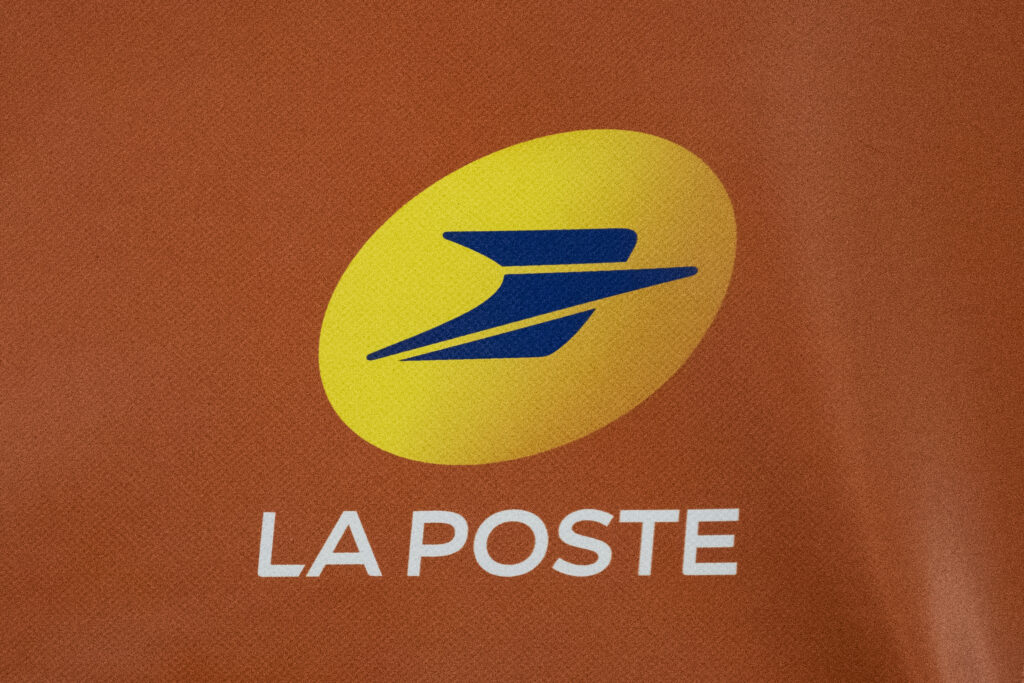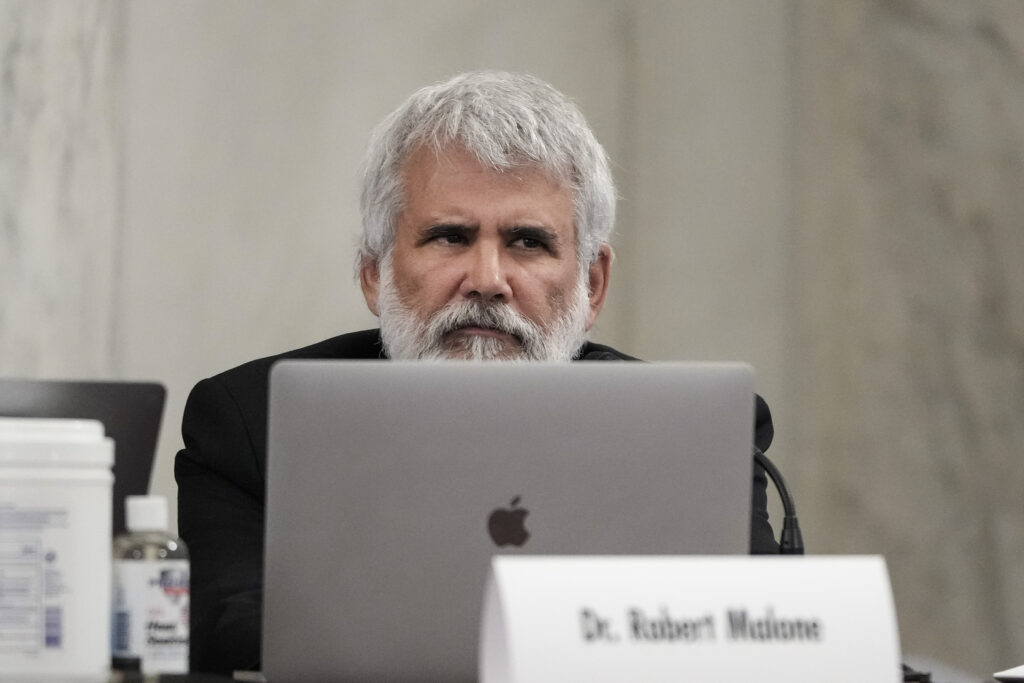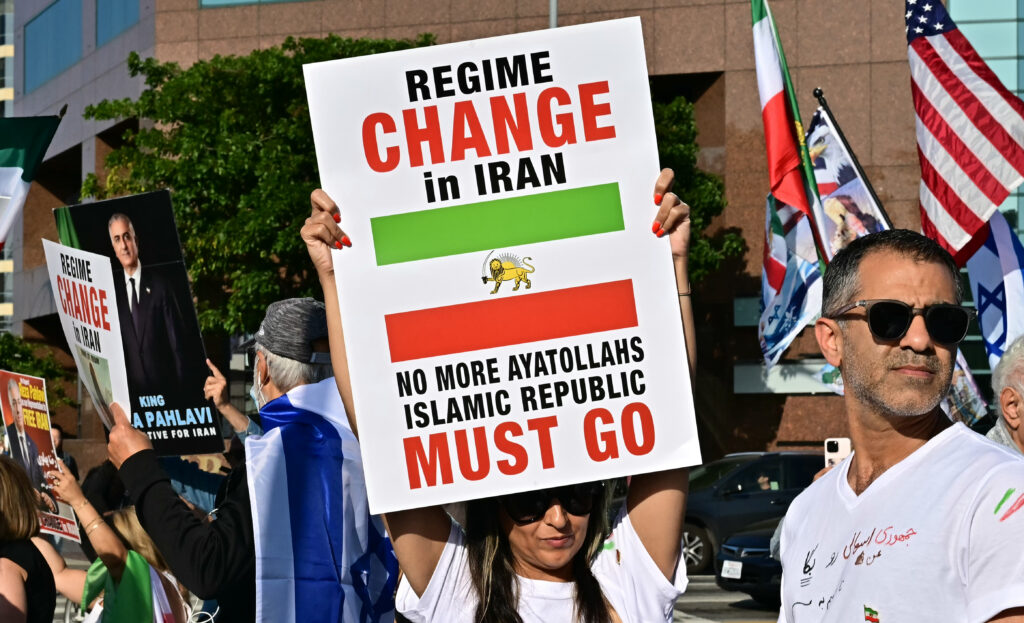La Poste au défi d’assurer un intérim, en attendant la nomination d’un nouveau PDG
Un ou plusieurs dirigeants par intérim devraient être nommés à la tête de La Poste alors qu’arrive à échéance mercredi le mandat de Philippe Wahl à ce poste stratégique, qu’il occupe depuis 12 ans. Mais l’Elysée n’a pas encore annoncé de nom.Il y a plusieurs candidats officiels à la succession de M. Wahl dont le mandat s’achève le 25 juin pour raison d’âge, et en attendant que le Président de la République ne se décide, La Poste devra donc dès mercredi assurer un intérim à sa tête.La multinationale aux 230.000 postiers assure quatre missions de service public en France et est par ailleurs très présente en Europe. Il revient à Emmanuel Macron de proposer un nom pour la succession à la direction d’une telle grande entreprise publique, cette proposition devant être soumise par la suite à approbation parlementaire.Problème: comme le président n’a toujours pas émis de souhait, l’exécutif s’est mis “hors délai”, notamment au regard de l’agenda parlementaire, relève une source proche du dossier interrogée par l’AFP. Selon les statuts de La Poste, il est alors possible dans ce cas de figure d’opérer une scission entre le poste de président et celui de directeur général.Les deux actionnaires de La Poste, la Caisse des Dépôts à 66% et l’Etat à 34%, désigneront mercredi une partie des administrateurs dont le mandat arrive à échéance. S’ils désignent Philippe Wahl comme administrateur, ce dernier, étant le plus âgé du conseil d’administration, en deviendra automatiquement le président par intérim.- 34,6 milliards d’euros de chiffre d’affaires -Par ailleurs, dans le cadre d’un processus d’intérim, les statuts de La Poste prévoient qu’un ou plusieurs directeurs généraux délégués soient nommés par le conseil d’administration.Dans l’attente qu’un nouveau PDG prenne officiellement ses fonctions, ce ou ces dirigeants assureront alors le pilotage opérationnel de l’entreprise aux 34,6 milliards d’euros de chiffre d’affaires (en 2024), chroniquement confrontée à l’attrition du courrier et dont les missions de service public (distribution du courrier et de la presse, aménagement du territoire, accessibilité bancaire) ne sont pas intégralement financées par l’Etat.La Poste devait communiquer à l’issue de son conseil d’administration du 25 juin.La multinationale, dont près d’un quart des effectifs travaille à l’étranger selon son dernier document financier (DEU), est présente également dans la téléphonie mobile, les services de proximité, l’assurance, la banque et la livraison internationale de colis.Six candidats ont été auditionnés par le comité des nominations, dont deux internes, Nathalie Collin, la directrice de la branche Grand Public et Numérique, et Stéphane Dedeyan, le président du directoire de la Banque postale.Mais ce dernier aurait finalement jeté l’éponge à la suite d’une polémique relayée par des médias sur le salaire qu’il aurait exigé, selon une source proche du dossier à l’AFP. M. Dedeyan souhaitait conserver son salaire actuel, qui est bien supérieur aux 450.000 euros annuels du PDG de La Poste.Mais aussi quatre candidats externes: Jérôme Fournel, l’ancien directeur de cabinet de l’ex-Premier ministre Michel Barnier et ex-directeur général des Finances publiques; Sylvie Jéhanno, la PDG de Dalkia; Claire Waysand, la directrice générale adjointe d’Engie et Marie Cheval, PDG de Carmila, la foncière de Carrefour.
La Poste au défi d’assurer un intérim, en attendant la nomination d’un nouveau PDG
Un ou plusieurs dirigeants par intérim devraient être nommés à la tête de La Poste alors qu’arrive à échéance mercredi le mandat de Philippe Wahl à ce poste stratégique, qu’il occupe depuis 12 ans. Mais l’Elysée n’a pas encore annoncé de nom.Il y a plusieurs candidats officiels à la succession de M. Wahl dont le mandat s’achève le 25 juin pour raison d’âge, et en attendant que le Président de la République ne se décide, La Poste devra donc dès mercredi assurer un intérim à sa tête.La multinationale aux 230.000 postiers assure quatre missions de service public en France et est par ailleurs très présente en Europe. Il revient à Emmanuel Macron de proposer un nom pour la succession à la direction d’une telle grande entreprise publique, cette proposition devant être soumise par la suite à approbation parlementaire.Problème: comme le président n’a toujours pas émis de souhait, l’exécutif s’est mis “hors délai”, notamment au regard de l’agenda parlementaire, relève une source proche du dossier interrogée par l’AFP. Selon les statuts de La Poste, il est alors possible dans ce cas de figure d’opérer une scission entre le poste de président et celui de directeur général.Les deux actionnaires de La Poste, la Caisse des Dépôts à 66% et l’Etat à 34%, désigneront mercredi une partie des administrateurs dont le mandat arrive à échéance. S’ils désignent Philippe Wahl comme administrateur, ce dernier, étant le plus âgé du conseil d’administration, en deviendra automatiquement le président par intérim.- 34,6 milliards d’euros de chiffre d’affaires -Par ailleurs, dans le cadre d’un processus d’intérim, les statuts de La Poste prévoient qu’un ou plusieurs directeurs généraux délégués soient nommés par le conseil d’administration.Dans l’attente qu’un nouveau PDG prenne officiellement ses fonctions, ce ou ces dirigeants assureront alors le pilotage opérationnel de l’entreprise aux 34,6 milliards d’euros de chiffre d’affaires (en 2024), chroniquement confrontée à l’attrition du courrier et dont les missions de service public (distribution du courrier et de la presse, aménagement du territoire, accessibilité bancaire) ne sont pas intégralement financées par l’Etat.La Poste devait communiquer à l’issue de son conseil d’administration du 25 juin.La multinationale, dont près d’un quart des effectifs travaille à l’étranger selon son dernier document financier (DEU), est présente également dans la téléphonie mobile, les services de proximité, l’assurance, la banque et la livraison internationale de colis.Six candidats ont été auditionnés par le comité des nominations, dont deux internes, Nathalie Collin, la directrice de la branche Grand Public et Numérique, et Stéphane Dedeyan, le président du directoire de la Banque postale.Mais ce dernier aurait finalement jeté l’éponge à la suite d’une polémique relayée par des médias sur le salaire qu’il aurait exigé, selon une source proche du dossier à l’AFP. M. Dedeyan souhaitait conserver son salaire actuel, qui est bien supérieur aux 450.000 euros annuels du PDG de La Poste.Mais aussi quatre candidats externes: Jérôme Fournel, l’ancien directeur de cabinet de l’ex-Premier ministre Michel Barnier et ex-directeur général des Finances publiques; Sylvie Jéhanno, la PDG de Dalkia; Claire Waysand, la directrice générale adjointe d’Engie et Marie Cheval, PDG de Carmila, la foncière de Carrefour.
La vaccination des enfants faiblit dans le monde, des millions de vies en danger, avertit une étude
La vaccination des enfants contre les maladies potentiellement mortelles s’essouffle dans le monde, sous l’effet d’inégalités économiques persistantes, de perturbations liées à l’ère Covid et de désinformation vaccinale, mettant en danger des millions de vies, avertit une étude publiée mercredi.Ce panorama mondial de la vaccination infantile de 1980 à 2023, publié dans The Lancet, fournit des estimations actualisées pour 204 pays et territoires, en amont d’une conférence des donateurs de l’Alliance du vaccin (Gavi) mercredi à Bruxelles.Ces cinquante dernières années ont connu des avancées sans précédent, et le programme essentiel de vaccination de l’Organisation mondiale de la santé a sauvé quelque 154 millions de vies d’enfants. La couverture vaccinale contre des maladies comme la diphtérie, le tétanos, la coqueluche, la rougeole, la poliomyélite, la tuberculose a par exemple doublé entre 1980 et 2023 dans le monde, retracent les chercheurs. Mais “ces progrès à long terme masquent des défis récents et des disparités notables”, note la revue médicale.Les vaccinations contre la rougeole ont ainsi diminué entre 2010 et 2019 dans près de la moitié des pays, surtout d’Amérique latine et des Caraïbes, et la proportion d’enfants ayant reçu au moins une dose de vaccin contre la diphtérie, le tétanos, la coqueluche, la rougeole, la polio ou la tuberculose a reculé dans la plupart des pays riches. C’est alors que la pandémie de Covid-19 a frappé, exacerbant les difficultés. Exemples de ses impacts: entre 2020 et 2023, près de 13 millions d’enfants supplémentaires n’ont jamais reçu la moindre dose de vaccin, et environ 15,6 millions d’enfants n’ont pas eu les trois doses complètes de vaccin contre la diphtérie, le tétanos et la coqueluche ou contre la rougeole. Et de grandes disparités subsistent, surtout au détriment des pays les plus pauvres. En 2023, plus de la moitié des 15,7 millions d’enfants non vaccinés dans le monde vivaient ainsi dans seulement huit pays, principalement en Afrique subsaharienne et en Asie du Sud. “La vaccination systématique des enfants est l’une des actions de santé publique les plus puissantes et rentables”, a déclaré Jonathan Mosser, auteur principal de l’étude et membre de l’Institut étasunien de métrologie et d’évaluation de la santé (IHME). – Epidémies en hausse -“Mais les inégalités mondiales persistantes, les défis posés par la pandémie de Covid, l’augmentation de la désinformation et de l’hésitation vaccinale ont tous contribué à affaiblir les progrès de la vaccination”, a-t-il résumé dans un communiqué.S’y ajoutent “un nombre croissant de personnes déplacées et des disparités grandissantes dues aux conflits armés, à la volatilité politique, à l’incertitude économique, aux crises climatiques”, a pointé Emily Haeuser, autre autrice et chercheuse de l’IHME.Résultat: les épidémies de maladies évitables grâce aux vaccins augmentent dans le monde, mettant des vies en danger et exposant les pays touchés à des dépenses croissantes pour y faire face.L’Union européenne a ainsi enregistré près de dix fois plus de cas de rougeole en 2024 qu’en 2023, et les Etats-Unis ont dépassé les 1.000 cas confirmés le mois dernier, soit déjà beaucoup plus que dans toute l’année 2024. Et un nombre croissant de cas de polio -longtemps effacée de plusieurs parties du globe par la vaccination- est signalé au Pakistan et en Afghanistan, tandis qu’une épidémie touche la Papouasie-Nouvelle-Guinée.Tous ces revers risquent d’empêcher d’atteindre les objectifs mondiaux de vaccination de l’OMS pour 2030. Parmi eux: administrer à 90% des enfants et adolescents les vaccins essentiels.L’OMS vise également une réduction de moitié du nombre d’enfants de moins d’un an n’ayant reçu aucune dose du vaccin contre la diphtérie, le tétanos et la coqueluche par rapport à 2019. Seuls 18 pays y sont parvenus jusqu’ici, selon l’étude, financée par la Fondation Gates et le Gavi. La communauté mondiale de la santé est également ébranlée depuis les coupes drastiques de l’administration du président Donald Trump à l’aide internationale étasunienne début 2025. “Pour la première fois depuis des décennies, le nombre d’enfants qui meurent dans le monde va probablement augmenter cette année, au lieu de diminuer”, a déclaré Bill Gates dans un communiqué distinct diffusé mardi.”C’est une tragédie”, a ajouté le cofondateur de Microsoft, promettant 1,6 milliard de dollars à Gavi pour la conférence. Sa fondation contribue aussi à financer l’OMS ou le groupement de lutte contre la poliomyélite.
La vaccination des enfants faiblit dans le monde, des millions de vies en danger, avertit une étude
La vaccination des enfants contre les maladies potentiellement mortelles s’essouffle dans le monde, sous l’effet d’inégalités économiques persistantes, de perturbations liées à l’ère Covid et de désinformation vaccinale, mettant en danger des millions de vies, avertit une étude publiée mercredi.Ce panorama mondial de la vaccination infantile de 1980 à 2023, publié dans The Lancet, fournit des estimations actualisées pour 204 pays et territoires, en amont d’une conférence des donateurs de l’Alliance du vaccin (Gavi) mercredi à Bruxelles.Ces cinquante dernières années ont connu des avancées sans précédent, et le programme essentiel de vaccination de l’Organisation mondiale de la santé a sauvé quelque 154 millions de vies d’enfants. La couverture vaccinale contre des maladies comme la diphtérie, le tétanos, la coqueluche, la rougeole, la poliomyélite, la tuberculose a par exemple doublé entre 1980 et 2023 dans le monde, retracent les chercheurs. Mais “ces progrès à long terme masquent des défis récents et des disparités notables”, note la revue médicale.Les vaccinations contre la rougeole ont ainsi diminué entre 2010 et 2019 dans près de la moitié des pays, surtout d’Amérique latine et des Caraïbes, et la proportion d’enfants ayant reçu au moins une dose de vaccin contre la diphtérie, le tétanos, la coqueluche, la rougeole, la polio ou la tuberculose a reculé dans la plupart des pays riches. C’est alors que la pandémie de Covid-19 a frappé, exacerbant les difficultés. Exemples de ses impacts: entre 2020 et 2023, près de 13 millions d’enfants supplémentaires n’ont jamais reçu la moindre dose de vaccin, et environ 15,6 millions d’enfants n’ont pas eu les trois doses complètes de vaccin contre la diphtérie, le tétanos et la coqueluche ou contre la rougeole. Et de grandes disparités subsistent, surtout au détriment des pays les plus pauvres. En 2023, plus de la moitié des 15,7 millions d’enfants non vaccinés dans le monde vivaient ainsi dans seulement huit pays, principalement en Afrique subsaharienne et en Asie du Sud. “La vaccination systématique des enfants est l’une des actions de santé publique les plus puissantes et rentables”, a déclaré Jonathan Mosser, auteur principal de l’étude et membre de l’Institut étasunien de métrologie et d’évaluation de la santé (IHME). – Epidémies en hausse -“Mais les inégalités mondiales persistantes, les défis posés par la pandémie de Covid, l’augmentation de la désinformation et de l’hésitation vaccinale ont tous contribué à affaiblir les progrès de la vaccination”, a-t-il résumé dans un communiqué.S’y ajoutent “un nombre croissant de personnes déplacées et des disparités grandissantes dues aux conflits armés, à la volatilité politique, à l’incertitude économique, aux crises climatiques”, a pointé Emily Haeuser, autre autrice et chercheuse de l’IHME.Résultat: les épidémies de maladies évitables grâce aux vaccins augmentent dans le monde, mettant des vies en danger et exposant les pays touchés à des dépenses croissantes pour y faire face.L’Union européenne a ainsi enregistré près de dix fois plus de cas de rougeole en 2024 qu’en 2023, et les Etats-Unis ont dépassé les 1.000 cas confirmés le mois dernier, soit déjà beaucoup plus que dans toute l’année 2024. Et un nombre croissant de cas de polio -longtemps effacée de plusieurs parties du globe par la vaccination- est signalé au Pakistan et en Afghanistan, tandis qu’une épidémie touche la Papouasie-Nouvelle-Guinée.Tous ces revers risquent d’empêcher d’atteindre les objectifs mondiaux de vaccination de l’OMS pour 2030. Parmi eux: administrer à 90% des enfants et adolescents les vaccins essentiels.L’OMS vise également une réduction de moitié du nombre d’enfants de moins d’un an n’ayant reçu aucune dose du vaccin contre la diphtérie, le tétanos et la coqueluche par rapport à 2019. Seuls 18 pays y sont parvenus jusqu’ici, selon l’étude, financée par la Fondation Gates et le Gavi. La communauté mondiale de la santé est également ébranlée depuis les coupes drastiques de l’administration du président Donald Trump à l’aide internationale étasunienne début 2025. “Pour la première fois depuis des décennies, le nombre d’enfants qui meurent dans le monde va probablement augmenter cette année, au lieu de diminuer”, a déclaré Bill Gates dans un communiqué distinct diffusé mardi.”C’est une tragédie”, a ajouté le cofondateur de Microsoft, promettant 1,6 milliard de dollars à Gavi pour la conférence. Sa fondation contribue aussi à financer l’OMS ou le groupement de lutte contre la poliomyélite.
Toxic threat from ‘forever chemicals’ sparks resistance in Georgia towns
Sasha and Jamie Cordle thought their small farm in rural Georgia would be a ladder out of working-class struggle, and a gift for their children and grandchildren.Instead, it may be poisoning them.Tests show their spring water is laced with toxic “forever chemicals” at levels tens of thousands of times above federal safety guidelines, likely from nearby carpet factories.”It scares us,” said Sasha, a 38-year-old dispatcher whose husband drives long hauls across the country. She’s worried about their five children, two-year-old granddaughter, and a grandson due in October.PFAS — or per- and polyfluoroalkyl substances — are a group of more than 10,000 human-made chemicals that repel heat, water, oil, and stains.Developed in the 1940s, they’re still used in nonstick pans, firefighting foams and stain-proof carpets, yet are now linked to hormonal disruption, immune suppression and cancers.Their ultra-tough carbon-fluorine bonds take millennia to break down in the environment, linger in bodies for years, and are now found in the blood of nearly every living creature on Earth.– ‘Carpet capital’ –In Dalton, Georgia, which calls itself the “Carpet Capital of the World,” mills run by giants Mohawk Industries and Shaw Industries are widely blamed for making the region one of America’s most PFAS-laden.They’re accused of spewing the chemicals into the air, flushing them into sewers unequipped to remove them, and indirectly contaminating farmland through sludge byproducts later spread as fertilizer.The Cordles have joined other landowners in suing the carpet makers, seeking damages to “remediate” their properties — a process they estimate could cost about $1 million per acre — plus punitive damages.Mohawk, Shaw, and chemical giant 3M declined to comment on the complaint. Chemical maker Chemours, another chemical maker and defendant, says it has no factories in Georgia and denies culpability.In a complex web of lawsuits, Dalton Utilities, which manages the local water system, has also sued the carpet makers, while Mohawk has sued 3M over the same issue.The Biden administration last year enacted the first enforceable national drinking water standards for six PFAS chemicals.But under President Donald Trump, the federal government has since rolled back limits on four of the chemicals and delayed the compliance deadline for the remaining two.- Test cases -Meanwhile, the Cordles have seen alarming signs, in both humans and animals.Sasha, who moved to the property after marrying Jamie in 2020, soon developed two autoimmune conditions, as well as high blood pressure and chronic fatigue.”Sometimes getting out of bed, I feel like I’m 80,” she said.Her grown children also report various ailments — and some goat kids didn’t survive their birth defects.Attorney Ben Finley is leading a wave of damages claims, recruiting new clients at buoyant town halls.So far, his firm has filed suits for 18 lead plaintiffs.”We’re drawing a direct line between contamination, lost property value and cleanup cost,” Finley said.– Entering the food web –While the lawyers work the crowds, water expert Bob Bowcock takes water, soil and dust samples to help build the scientific case behind the legal one.”We’ve got springs emitting into ponds that are discharging to creeks at over 180,000 parts per trillion,” he said. The national guideline for drinking water is just four parts per trillion, and local creeks are often seen frothing with pollution.PFAS in the soil move up the protein chain and into the food web — contaminating eggs, milk, beef, and leafy greens that find themselves on store shelves nationwide.The carpet makers are the area’s main economic lifeline, yet many are now turning against them.Mary Janet Clark, 62, toiled for the carpet makers, had her ovaries removed after cancer, and now has a tumor in her brain.”We helped them build their business and make all that money,” said her son, David Wray, 40. “It’s just cruel.”– Lost dreams –Others share similar grief.Human-resources manager Teresa Ensley, 57, lost her brother, father and husband to cancer in just a few years.Studies have linked PFAS to elevated colon cancer rates, the disease that killed her brother and husband. She and her 81-year-old mother both suffer severe thyroid problems and have had hysterectomies.Even for those not yet sick, the toll is palpable.Greg and Sharon Eads hoped to retire on farmland they bought in 2019, but it has since tested hot for PFAS, unraveling their dream.They own $50,000 worth of cattle now off-limits for milk or meat.It’s become “basically a petting zoo,” said Greg. “I can’t do anything with them, not in good conscience.”During a recent visit, the couple led AFP through bucolic pastures where the herd huddled around a healthy newborn calf — a welcome moment of hope after several others were lost to deformities.
RFK Jr’s medical panel to revisit debunked vaccine claims
A vaccine panel appointed by US Health Secretary Robert F. Kennedy Jr. will revisit long-settled science and spotlight rare risks linked to childhood immunizations in a meeting beginning Wednesday, raising fears that fringe theories could seep into national policy.The Advisory Committee on Immunization Practices (ACIP), an independent body that reviews scientific evidence to recommend which groups should receive vaccines and when, rarely makes headlines.But these are no ordinary times. Kennedy, who spent two decades spreading vaccine misinformation before becoming President Donald Trump’s top health official, has brought that skepticism into the federal government.Earlier this month he abruptly dismissed all 17 ACIP members before their terms had expired, accusing them of financial ties to the pharmaceutical industry — despite a vetting process meant to minimize conflicts of interest.He then appointed eight new members, including scientist Robert Malone, widely known for spreading false claims during the Covid-19 pandemic and promoting the deworming drug ivermectin.The posted agenda includes standard topics like influenza and Covid-19 vaccines — but the addition, on the second day of discussions, of measles, mumps, rubella, and varicella (MMRV) vaccines for young children, along with thimerosal-containing flu shots, has alarmed experts.Ahead of the meeting, US senator and physician Bill Cassidy — a Republican whose reluctant support was key to Kennedy’s confirmation — called for a delay, citing the panelists’ inexperience and bias.- Debunked autism connection -Thimerosal is a mercury-based preservative long used in medicines, with no evidence of harm at low doses.”Study after study showed that the ethylmercury in those vaccines never contributed in any important way to the burden of mercury that one is exposed to, living on this planet,” vaccine expert Paul Offit of the Children’s Hospital of Philadelphia told AFP.Still, vaccine makers agreed to remove it from pediatric vaccines in 1999 in response to public concern. It remains in some flu shots.The presenter arguing against thimerosal is Lyn Redwood, a nurse and former leader of Children’s Health Defense — an anti-vaccine nonprofit once chaired by RFK Jr.According to her biography page, Redwood blames her son’s autism on vaccines — a link that has never been proven.The Centers for Disease Control and Prevention, which is overseeing the meeting, will argue thimerosal is safe and has no effect on neurodevelopment, based on a thorough review of the evidence. – Rampant measles outbreak -For childhood vaccines, US parents can choose a combined measles, mumps, rubella, and varicella (MMRV) shot or two separate injections — one for MMR, the other for varicella.The combination spares an extra jab but carries a slightly higher risk of febrile seizures, a rare and typically harmless side effect.Separating the shots is already recommended for infants’ first dose at age 12-47 months, leaving experts puzzled as to why the issue is being revisited. Notably, there’s no planned discussion on the benefits of measles vaccines, which have prevented millions of hospitalizations.”The discussion of MMRV vaccines, critical tools in preventing measles, mumps, rubella, and varicella, must be rooted in science, not ideology,” said Syra Madad, an infectious disease epidemiologist at NYC Health + Hospitals.The United States, which declared measles eliminated in 2000, is currently experiencing its worst measles outbreak of the disease in decades, with more than 1,200 cases and three confirmed deaths.”ACIP is going to become an outlet for anti-vaccine propaganda and increasingly irrelevant to the practice of medicine,” warned Amesh Adalja, an infectious disease expert at Johns Hopkins University.Still, the panel’s recommendations could have broad consequences, shaping school vaccine mandates and insurance coverage.
Sean Combs trial: Takeaways from testimony
Both parties have rested in the trial of Sean “Diddy” Combs, and now lawyers will address jurors directly with marathon closing arguments.Music mogul Combs, 55, faces federal charges of racketeering, sex trafficking, and transportation with intent of prostitution. He denies all charges and faces life in prison if convicted.As the final stages of the at-times tumultuous proceedings approach, here are takeaways from the Manhattan trial.- Key testimony from victims -Throughout the prosecution’s nearly seven-week case, three women took the stand to describe harrowing details of graphic sexual assault, including rape.The first was Casandra Ventura, the singer who dated Combs for 11 years. She made her dramatic turn as a star witness last month while eight months pregnant with her third child.She recounted degrading, drug-fueled, frequently filmed sex parties with escorts she said Combs coerced her into, and also told jurors he raped her near the end of their relationship.Jurors have repeatedly watched disturbing surveillance footage of Combs brutally beating and dragging Ventura, a video already seared into the public consciousness after CNN published it last year.A former assistant of Combs testified under the name Mia, and described trying to protect Ventura from Combs’s fits of rage. Mia told jurors she personally endured abuse, including rape, from Combs.A third woman, Jane, also testified of orchestrated sex parties with paid escorts. She said she felt “obligated” to acquiesce to Combs’s desires, for “fear of losing the roof over my head” that he was bankrolling.- Bad Boy Entertainment or criminal enterprise? -Prosecutors say Combs headed a criminal organization that enforced his power with myriad crimes including forced labor, kidnapping, bribery, witness tampering and arson.The Racketeer Influenced and Corrupt Organizations Act, known by its acronym RICO, encompasses 35 specific offenses, including the aforementioned crimes. Prosecutors must prove a criminal pattern involving at least two of them.Government attorneys, who must also show the existence of an enterprise, say Combs’s sprawling music, fashion and business empire doubled as a criminal ring that included some high-ranking associates and other employees.Through testimony and evidence, prosecutors have suggested that Combs’s chief of staff and his head of security were both key to the alleged enterprise — but neither were called to the stand, nor have they been charged publicly.Many witnesses, including former assistants, were given immunity orders so they could speak truthfully without fear of incriminating themselves.- The digital footprint -Records of private messages have played a major role in the prosecution’s case, a reflection of the paper trail that accompanies society’s dependence on digital communication.The government’s evidence included thousands of pages of phone and text records, and hours of testimony involved meticulous readings of some of the most explicit and wrenching exchanges.Combs’s relationship with Ventura lasted from around 2007-2018, and records included many texts as well as e-mails. The testimony of Jane, a girlfriend of Combs from 2021-2024, was grounded in voluminous text conversations as well as audio voice messages and diaristic entries into her Notes app.Many of those records appear to indicate distress on the part of the alleged victims. But a lot of the messages also show affection and desire — texts the defense underscored again and again.Jurors have seen video evidence of the sex parties prosecutors say were criminal, while the defense has exhibited exchanges they said imply consent.Also in evidence are reams of financial records — including CashApp payments to escorts — as well as flight and hotel records.- Coercion versus consent -Core to the prosecution’s case is a question of coercion versus consent: were the alleged victims in the case coerced, forced or fraudently made to engage in drug-addled sex marathons under threat of harm — or were they knowing and willing participants?In its opening statements, the defense said Combs’s accusers are “capable, strong adult women.””Being a willing participant in your own sex life is not sex trafficking,” said lawyer Teny Geragos.Ventura and Jane both said they experienced emotional manipulation and threats that were reputational, financial and physical.And a forensic psychologist explained to jurors how the tactics of abusers can keep victims from leaving relationships.- Celebrities, influencers and the online gossip machine -Jurors are instructed every day not to consume media about the case — a mighty task, as news of the trial has permeated media ecosystems and social platforms.Dozens of news organizations are covering the trial, along with enthusiastic content creators cashing in on the internet’s desire for hot takes and celebrity gossip.Combs is incarcerated and does not enter or exit the courthouse publicly. But some of the high-profile attendees and witnesses do, including members of the music mogul’s family and figures like Kid Cudi, the rapper who testified that Combs’s entourage torched his car.And the brief cameo of Ye, who stopped by to lend his “support” to Combs, was a particular field day for the chronically online.
Gaza rescuers say 46 killed as UN slams US-backed aid system
Gaza’s civil defence agency said Israeli forces killed another 46 people waiting for aid in the Palestinian territory on Tuesday as rights groups and UN agencies slammed the US-backed food distribution system.Civil defence spokesman Mahmud Bassal told AFP that 21 people were killed and around 150 wounded by Israeli fire near an aid point in central Gaza early Tuesday, and that another 25 were killed in a separate incident in south Gaza.”Every day we face this scenario: martyrs, injuries, in unbearable numbers,” paramedic Ziad Farhat told AFP at Nasser Hospital in southern Gaza.”Hospitals cannot accommodate the number of casualties arriving,” he said.Israel’s opposition leader and the families of Israeli hostages being held in Gaza called on Prime Minister Benjamin Netanyahu to widen a ceasefire with Iran to include the Palestinian territory.But the country’s military chief later warned that Israel would now refocus on its campaign to crush the Palestinian Islamist group Hamas in the territory.”Now the focus shifts back to Gaza — to bring the hostages home and to dismantle the Hamas regime,” chief of staff Lieutenant General Eyal Zamir said in a statement shared by the army.- Aid distribution tensions -Pressure grew Tuesday on the US- and Israeli-backed privately run aid group Gaza Humanitarian Foundation (GHF), which was brought into the Palestinian territory at the end of May to replace United Nations agencies.The head of the UN agency for Palestinian refugees (UNRWA) called the system an “abomination” while a spokesman for the UN human rights office, Thameen Al-Kheetan, condemned the “weaponisation of food” in Gaza.According to figures issued on Tuesday by the health ministry in the Hamas-run Gaza Strip, at least 516 people have been killed and nearly 3,800 wounded by Israeli fire while seeking rations since late May.The territory of more than two million people is suffering from famine-like conditions after Israel blocked all supplies from early March to the end of May and continues to impose restrictions, according to rights groups.Writing in the Guardian newspaper, spokesman for the UN children’s agency UNICEF James Elder said 400 aid distribution points had dwindled to four under GHF while supplies in “jampacked” warehouses outside Gaza could not be brought in. – ‘Tank shells’ – Gaza civil defence spokesman Bassal reported a first deadly shooting Tuesday “with bullets and tank shells” near the Netzarim corridor in central Gaza where thousands of Palestinians gather each night for rations near a GHF site.The Israeli military said that a crowd had been identified in an area “adjacent” to its troops.Witness Ribhi Al-Qassas told AFP that troops had “opened fire randomly” at a crowd he estimated at 50,000 people.The second incident took place in south Gaza about two kilometres from another GHF centre in Rafah governorate, Bassal said.”Israeli forces targeted civilian gatherings near Al-Alam and Al-Shakoush areas with bullets and tank shells”, he told AFP.Israeli restrictions on media in the Gaza Strip and difficulties in accessing some areas mean AFP is unable to independently verify the tolls and details provided by rescuers and witnesses.UN agencies and major aid groups have refused to cooperate with GHF over concerns it was designed to cater to Israeli military objectives.GHF has denied responsibility for deaths near its aid points. On Monday, more than a dozen human rights organisations called on the organisation to cease its operations, warning of possible complicity in war crimes.- Ceasefire calls -After Israel agreed to a ceasefire with Iran on Tuesday after a 12-day war, Netanyahu faced renewed calls to agree a ceasefire with Hamas after more than 20 months of war in Gaza. “It’s time to finish it there too. Bring back the hostages, end the war,” opposition leader Yair Lapid of the centre-right Yesh Atid party wrote on X. Netanyahu said on Sunday that Israel’s war against Iran was “contributing to the successes in Gaza, but it will still take a bit more time”. The October 2023 attack on Israel by Palestinian militant group Hamas that sparked the Gaza war resulted in the deaths of 1,219 people, mostly civilians, according to an AFP tally based on official figures.Of the 251 hostages seized by Palestinian militants in October 2023, 49 are still held in Gaza, including 27 the Israeli military says are dead.Israel’s retaliatory military campaign has killed at least 56,077 people, also mostly civilians, according to the Gaza health ministry. The United Nations considers its figures reliable.
Iran diaspora in Los Angeles dream of ‘regime change’
At his grocery store in an Iranian neighborhood of Los Angeles, Mohammad Ghafari is worried sick about his brothers and sisters since the United States bombed the Islamic republic’s nuclear sites.But as he stands among his dates, dried plums and pistachios, he also cherishes the hope of change in his native country. Iran “is not capable of providing food to the Persian people,” said Ghafari, who left to study abroad before the 1979 revolution and never returned. “If the people (there) were happy about a change of regime, I would be too.””Everyone would be happy,” agreed Fereshteh, one of his customers and a fellow resident of so-called “Tehrangeles” — a mash-up of Tehran and Los Angeles.For Fereshteh, who gave only her first name to protect her identity, “Donald Trump is a hero.” The American president ordered strikes against three Iranian nuclear sites last weekend, providing unprecedented support to Israel in its offensive against Iran.He even raised the possibility of “regime change,” before backing away and saying it would sow chaos.Any talk of ousting Iran’s clerical leadership resonates strongly in the Los Angeles area, where nearly 200,000 Iranian-Americans live, making the Californian metropolis the diaspora’s global hub. Many of its members live in the west end of the city, near the UCLA campus. Filled with Middle Eastern grocery stores, carpet merchants and bookstores selling books in Farsi, the neighborhood is also known as “Little Persia.” The immigrants who have made it their home include minorities often seen as discriminated against in Iran, such as Jews, Christians and Assyrians.- ‘Rise up’ -“It’s time for the Iranian people to rise up, because right now, the regime is very weak,” said Fereshteh, herself Jewish, who fled Iran in the 1980s during the war between her country and Iraq. Trump was elected on a promise to focus on America and stay out of foreign wars.But among the grocery store’s customers, some would like him to push his intervention in Iran to the limit. “We should send troops there,” says Mehrnoosh, a 45-year-old woman who arrived in the United States in 2010. “The people there have their hands tied,” she said, adding that “the regime killed so many Iranians three years ago during the protests following the death of Mahsa Amini,” a student arrested for allegedly flouting dress rules for women. But on the patio of the “Taste of Tehran” restaurant, one man hopes the United States will pull back to avoid its fate in Iraq and Afghanistan.”Change by force never pays off….Change must come from within, by the people, for the people, and we’re not there yet,” said the 68-year-old engineer, who wished to remain anonymous.The conflict has so far claimed more than 600 lives in Iran and 28 in Israel, according to authorities in both countries. A fragile ceasefire in the war between Iran and Israel war appeared to be holding on Tuesday — a relief for the engineer, who had recently spoken to his aunt on the phone. For several days, she fled Tehran for the northwest of the country to escape Israeli bombardments.”Is it worth it? Absolutely not,” he said, recalling he lost his grandparents to bombs during the Iran-Iraq War. “My hope is for all this to end soon.”









